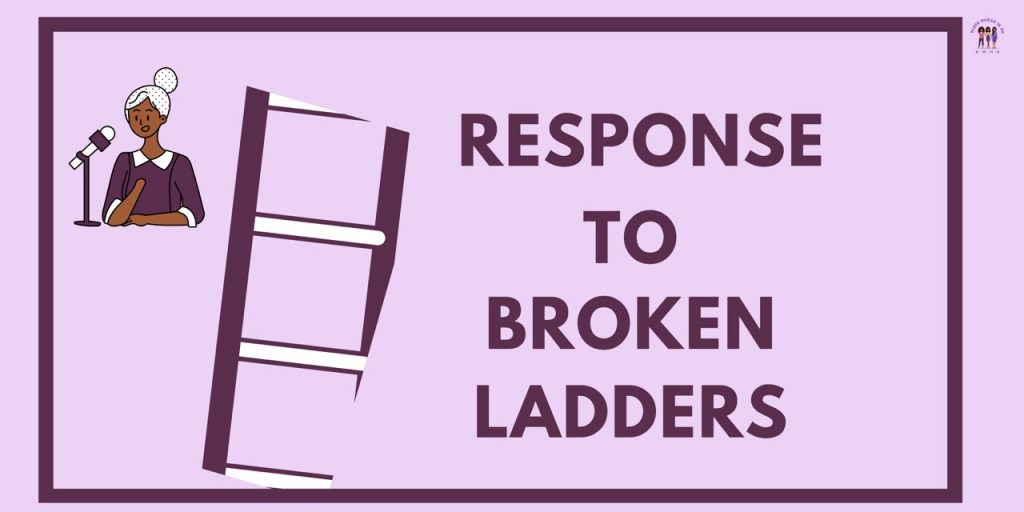Response from Broken Ladders
The Myth of Meritocracy for Women in the workplace shows that women of colour face racism across all sectors and levels of seniority. Experiencing one or more forms of racism at work was reported by 75% of women of colour. Of those, 45% stated that it affected their desire to remain in the role, either “a great deal” or “quite a bit”.
The experiences ranged from “banter” about ethnicity or culture, and micro-aggressions such as repeatedly mispronouncing their name, to outright racial slurs. Whereas 44% of white women report changing something about themselves to “fit in” with a workplace, 61% of women of colour had made changes, such as to their language, hairstyle and even their name. Having a manager block progression at work was reported by 28% of women of colour, compared to 18% of white women.
It makes several recommendations to employers, themed around minimising bias in recruitment and progression, increasing support for women of colour through mentoring, training and development and confronting racism in the organisation. It also aims recommendations at the government, including making ethnicity pay gap reporting mandatory and legislating to improve pay transparency, as well as at unions and universities.
Paul Seath, Lawyer and BWHR Advocate reviewed the report and came up with additional recommendations that we would like everyone to share with their businesses for considerations. Please see below;
Broken Ladders: Recommendation
The myth of meritocracy for women of colour in the workplace
- Minimise bias in recruitment
- Make job advertisements more inclusive by:
- Including salary
- Featuring flexible working options
- Producing job descriptions which recognise transferable skills
- Reduce bias and be more transparent in hiring processes by:
- Not asking about current salary at interview
- Removing names from CVs when shortlisting
- Producing guidance to explain what is required of applicants
- Creating safe online spaces on your website for women of colour share their experience of organisations
- Make job advertisements more inclusive by:
- Minimise bias in progression
- Set structures to deliver fair progression by:
- Training managers in conducting supportive and developmental appraisals
- Broadening appraisal systems to have 360-degree feedback
- Linking line managers’ performance targets to organisational performance targets on diversity and inclusion
- Provide ongoing support to leaders to improve their ability to talk about race and actively listen to feedback from women of colour
- Set structures to deliver fair progression by:
- Support women of colour to progress
- Conduct an annual learning and development audit by gender and ethnicity to track:
- How training budgets are spent
- Who is being given access to prestige level training / development
- The progression of employees after accessing training / development
- Make progression routes explicit and well-known, not based on word of mouth
- Ensure that women of colour have equitable access to both mentorship and sponsorship opportunities by providing opportunities to receive peer to peer mentorship
- Provide reciprocal mentorship programmes, which:
- Provide training for senior leaders on how to do this effectively
- Compensate women of colour for this additional work
- Undertake regular “stay interviews” (an alternative to “exit interviews”), giving women of colour safe spaces to feedback on their career experiences
- Conduct an annual learning and development audit by gender and ethnicity to track:
- Address racism
- Produce an ethnicity report and gender pay gap report and use this to develop an Anti-Racism Action Plan
- Publish progression data broken down by ethnicity for staff at all levels and make this readily available for job applicants as well as employees
- Sign up to the Business in the Community (BITC) Race at Work Charter
- Appoint an executive sponsor for race
- Value the skills women of colour bring to leadership, rather than making women of colour conform to stereotypical ideas
- Have clear and transparent processes for reporting racism, including options outside line management structures, and ensuring employers are aware of these
- Introduce meaningful and intersectional anti-racism training, including:
- Ensuring anti-racist training to minimise bias in recruitment decision-making
- Noting the limitations of unconscious bias training on its own and ensue it is part of the wider organisational action plan
- Recognise the major role that line management plays in shaping experiences
- Recognise and reward women of colour and other minoritised groups if they are asked to engage in work to support anti-racism
- Have a plan for reducing the cumulative impact of micro-aggressions and working in unwelcoming spaces
Compiled by Paul Seath, Impact Lawyer



